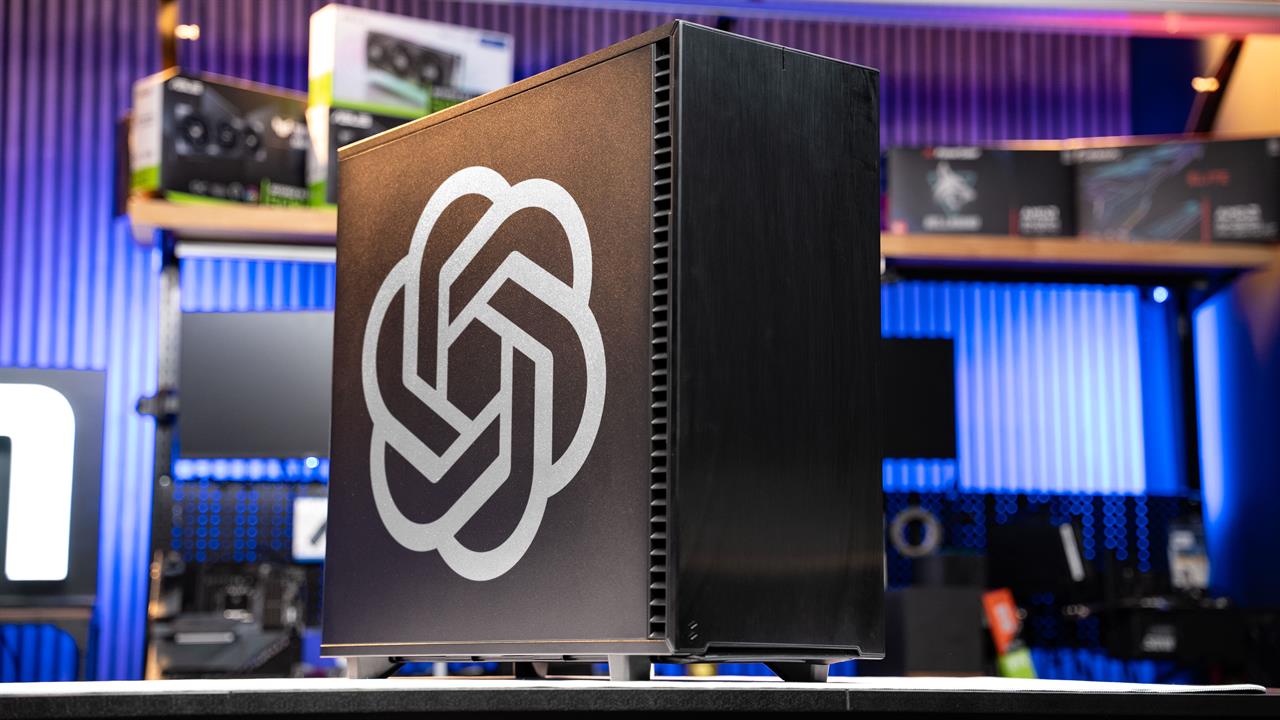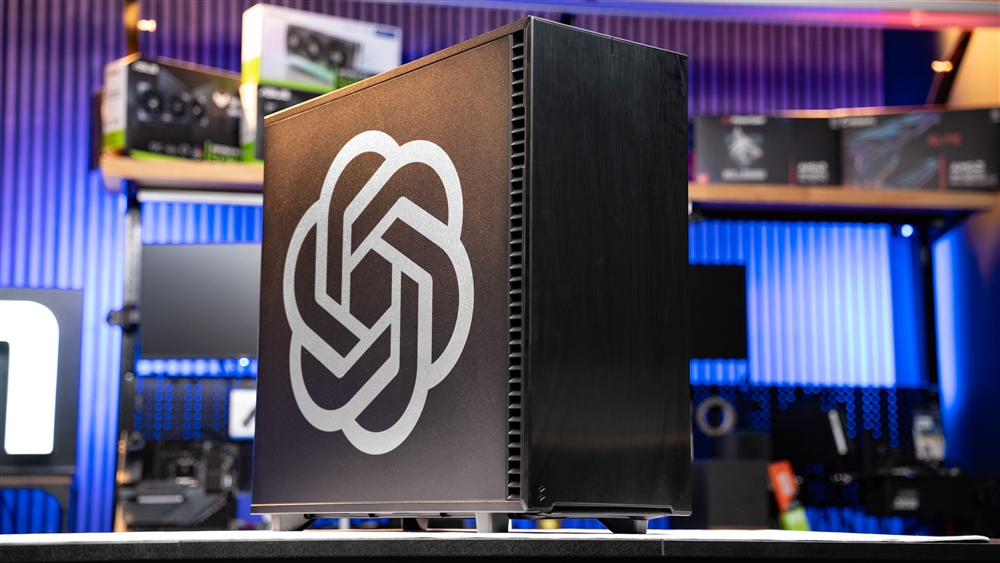This Week in AI: OpenAI's Big ChatGPT Upgrades, GPT-5 and GPT-OSS
For Aug. 8, 2025: Google Jules launches, Anthropic upgrades Opus, YouTube using AI to sniff out kids, AI trips up another legal case, Apple Intelligence under pressure.News

It took more than half a year, but OpenAI's answer to China's DeepSeek-R1 is finally here, with the release of gpt-oss. The new publicly available code allows anyone to download a complex version of OpenAI‘s popular ChatGPT to run on nearly any computer they wish.
OpenAI described gpt-oss as performing about as well as GPT o3 or GPT o4-mini, according to a report from Wired. But it’s not guaranteed to be the same experience. One YouTuber, Theo Browne, tried OSS on an M2-powered MacBook Pro and was able to get an answer to a complex query back from the model in about 20 minutes. That's much slower than ChatGPT's online version, but now it's running on the privacy of your own machine. "It's relatively fast," Browne said in a recent video. "I'll test this on a plane just to see how it works."
The new gpt-oss can run on devices with as little as 16GB of memory, OpenAI said, making making it likely we'll see gpt-oss running on a smartphone sometime soon. [Our own testing indicates that you really need 16GB of dedicated graphics memory. A system with 16GB of total memory will struggle because, of course, some of that memory must be dedicated to other tasks.]
The move marks another way AI companies are hoping to offer compelling upgrades by remixing and shrinking their products.
AI advancements haven't moved at as rapid a pace as some companies had hoped. Two decades ago, smartphones which saw a dramatic series of upgrades starting with GPS, then high-resolution screens, followed by 4G mobile internet and improved cameras, all within a few years. By comparison, AI chatbots haven't changed as much, though industry watchers say they've improved in quality.
The most dramatic differences instead have come through specialized and adjacent features, like video production and tools for coding.
Companies have also put effort into making AI easier to use, like...
ChatGPT 5 launches
Shortly after announcing gpt-oss, OpenAI announced its next-generation GPT-5. The upgrade is more than just a larger number, it's been developed to be easier to use.
The most dramatic change will be for paying subscribers, who until now have had a dizzying array of options whenever opening a new chat window. OpenAI had created different versions of its models focused on coding, image generation, writing and math. Now, OpenAI says GPT-5 will figure out which AI tools to use, effectively helping ensure users get the best responses.
OpenAI also said GPT-5 will be available to everyone, though paying users can use it more. Those using the service for free will have usage limits for the most advanced version of GPT-5, only able to send less than a dozen messages or requests to the before being pushed to the slightly less capable GPT-5 mini.
Google and Anthropic's responses
Not to be outdone by OpenAI's GPT-5, competitors Google and Anthropic offered their own announcements. For Google, it was the public launch of its Jules coding agent, which had been announced as a free beta earlier this month. Now, Google said it will tie Jules access to its AI subscription service, which starts around $20 per month.
Anthropic, meanwhile, announced upgrades to its Opus AI, which it said is now particularly better at coding across multiple files.
YouTube using AI to detect kid accounts
YouTube became the latest company to start using artificial intelligence to track and identify users who might be young children or teenagers and apply safety settings to their account automatically if so. The move mirrored Instagram, which began using AI to detect younger users earlier this spring.
YouTube said that there are a number of signals that give away an account is being used by someone who is younger, including the types of videos they watch, how long they watch those videos, and how long the account has been active.
All of this is part of a wider effort across the tech industry to respond to concerns from parents and politicians about the impact technology is having on society.
Notably, Instagram itself became a central flashpoint in the debate when research from its parent company Meta was leaked to the public indicating some teenagers had said they felt worse about themselves and their bodies after using Instagram.
While most researchers and advocates recommend that parents establish open communication with their children about Internet habits, tech companies have increasingly found that applying AI systems in the name of protecting children is helping to stem some criticism about their platforms.
Airbnb host uses AI to fake damages
An Airbnb host reportedly used AI to falsely claim one of their guests had left thousands of dollars in damages after staying at their New York apartment, according to a report from The Guardian.
The well-reviewed "superhost" had made the accusation after a London-based woman cut short her planned stay in a one-bedroom apartment because she felt unsafe, the publication wrote. Shortly after, the host accused her of roughly $16,000 in damages.
Among the pictures submitted was a cracked wooden coffee table, as well as a supposed stained mattress and other damaged items. The Guardian said Airbnb had told the guest she'd have to pay after the company performed "after careful review of the photos."
When she appealed, she noted "discrepancies" between the location of the crack on the coffee table when viewed from different angles. "These inconsistencies are simply not possible in genuine, unedited photographs of the same object," she told the Guardian.
Shortly after the publication reached out to Airbnb for comment, it accepted her appeal and offered a credit to her account. Eventually, it refunded her stay and removed a negative review the host had left on her account.
“Given the ease with which such images can now be AI-generated and apparently accepted by Airbnb despite investigations, it should not be so easy for a host to get away with forging evidence in this way," she told the Guardian.
This adds to a growing list of examples where AI is being used in legal and judicial settings, with embarrassing results. One website that tracks these cases, identified more than 200 this year alone. Some lawyers have been officially sanctioned after their AI use was exposed. In one instance, a lawyer cited a quote the presiding judge had never said. (The motion was denied.)
Apple feeling the heat from AI
When Apple announced its Apple Intelligence features back in 2024, the technology stood out from other AIs by providing tools that were easy to use in our daily lives. Its writing support, for example, promised to help people make their messages and emails easier to read, or even less abrasive. Its image editing tools were designed for both fun and useful edits.
But the company struggled to deliver on its bigger promise of revamping its Siri voice assistant into an all-seeing AI that understood your apps, calendar, contacts, and more. In a recent report from Bloomberg Apple software head Craig Federighi told company employees in a meeting that future upgrades for Siri would be even bigger than what had been previously announced.
"The work we’ve done on this end-to-end revamp of Siri has given us the results we needed," Bloomberg quoted Federighi saying. "This has put us in a position to not just deliver what we announced, but to deliver a much bigger upgrade than we envisioned. There is no project people are taking more seriously."
Of course, Apple isn’t the only company feeling the heat. Startups like OpenAI and Anthropic built multi-billion dollar businesses on the technology. Others like the chipmaker NVIDIA, software giant Microsoft, and the internet giants Alphabet and Meta also believe that AI will be one of the determining technology revolutions of the computer age.
All of these companies have seen their value skyrocket as AI excitement has swept the tech, business, and finance worlds. NVIDIA was the first public company ever to be valued at more than $4 trillion, and then it was followed up by Microsoft a little over a week ago. Apple, a long time, darling of investors, and the first trillion-dollar company, is currently valued at $3.27 trillion.
Industry watchers worry that the excitement over AI is creating a bubble and, to be sure, companies so far have yet to show significant profits from the technology. Instead, they promise that as AI takes over many aspects of our lives, it will cement itself as the tools everyone relies on, just as we do with smartphones and internet connections today.
Google promises $1 billion in AI training
Google’s AI might be one of the leading technologies out there, but people still have to actually use it.
The tech giant took a step closer when it announced a new AI training initiative with universities and nonprofits, committing more than $1 billion in support. The program will include free career certificates, expanded access to the company's AI tools, and more.
"Knowing how to use this technology will also serve these students well as they transition to the world of work," Google CEO Sundar Pichai said in a blog post on the company's site. "Getting our most powerful technology into students’ hands — while supporting them with training and infrastructure — is how they’ll shape the AI platform shift and make sure it benefits everyone."
While it's certainly smart for Google to train the next generation of workers on its tools, the company also appears to be acknowledging the part it may play and disrupting future job markets.
Researchers and analysts have for years warned that automation is likely to impact large swaths of the working world, and it already appears to have begun. LinkedIn, for example, has warned that recent college grads are struggling so much to find entry-level jobs that they're starting to mirror the decline in U.S. manufacturing jobs in the 1980s. IBM's CEO meanwhile has said that many administrative functions at his company are being replaced by AI. Salesforce CEO has also said AI is representing significant portions of the coding work in the company's customer relationship management service ecosystem.
More from MC News
- The NVIDIA 50 Series Laptop Buying Guide
- Best 3D Printer Projects for Nintendo Switch 2
- How to Upgrade Your Laptop's RAM and Storage
- How to Build Your Own AI Personal Assistant
- The End is Coming for Windows 10: What You (Still) Need to Know
- Keyboard 101: Intro to Computer Keyboards
- Fix It Yourself: Talking to iFixit on Why Repairable Tech Matters
Ian Sherr is a widely published journalist who's covered nearly every major tech company from Apple to Netflix, Facebook, Google, Microsoft, and more for CBS News, The Wall Street Journal, Reuters, and CNET. Aside from writing, he tinkers with tech at home, is a longtime fencer -- the kind with swords -- and began woodworking during the pandemic.
Comment on This Post
See More Blog Categories
Recent Posts
This Week in AI: OpenAI's Big ChatGPT Upgrades, GPT-5 and GPT-OSS
For Aug. 8, 2025: Google Jules launches, Anthropic upgrades Opus, YouTube using AI to sniff out kids, AI trips up another legal case, Apple Intelligence under pressure.
Continue Reading About This Week in AI: OpenAI's Big ChatGPT Upgrades, GPT-5 and GPT-OSS









